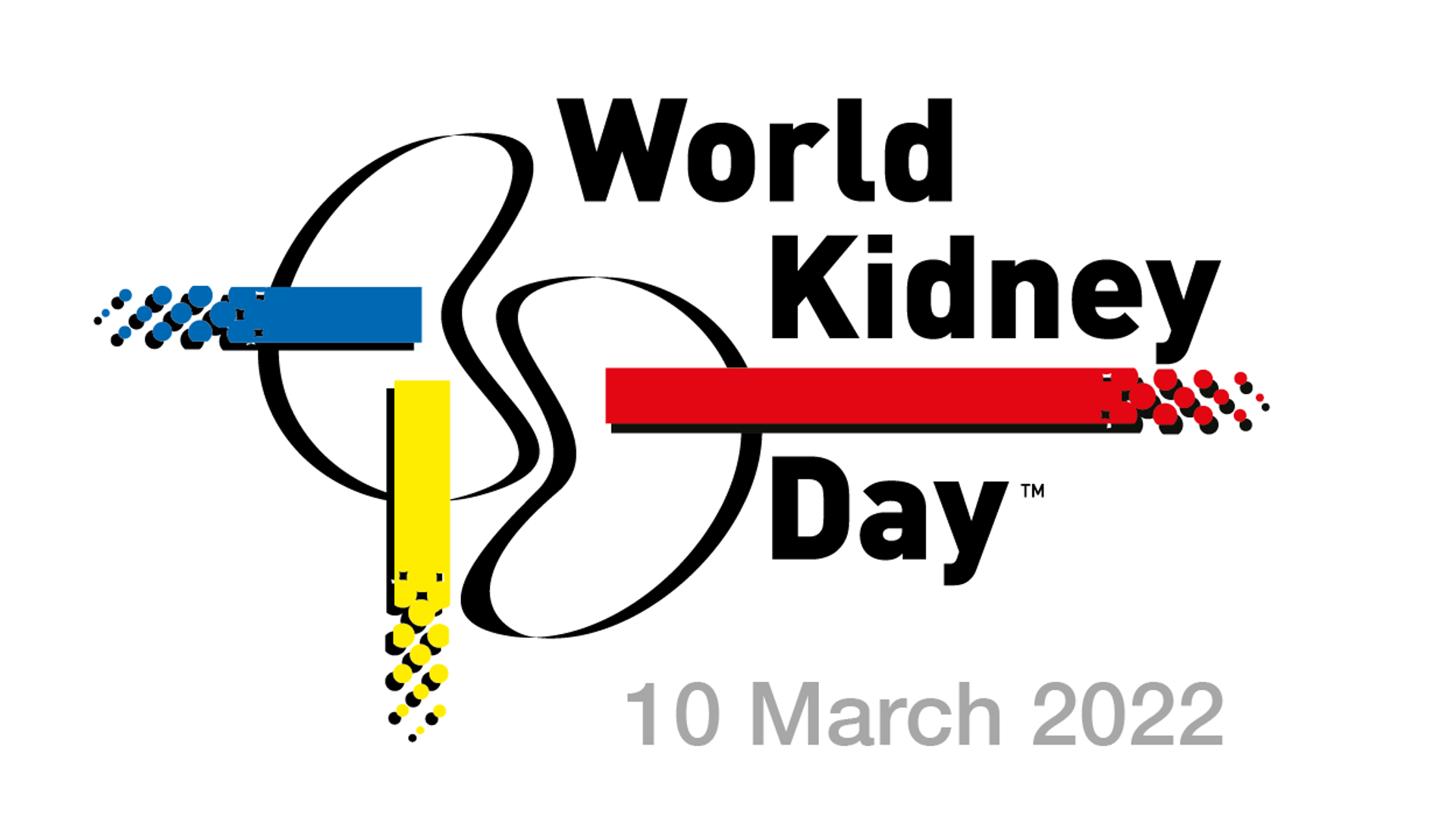https://sputnikglobe.com/20220310/world-kidney-day-doctors-share-tips-on-early-detection-treatment-of-chronic-kidney-disease-1093740917.html
World Kidney Day: Doctors Share Tips on Early Detection, Treatment of Chronic Kidney Disease
World Kidney Day: Doctors Share Tips on Early Detection, Treatment of Chronic Kidney Disease
Sputnik International
With the new theme "Kidney Health for All", World Kidney Day is being celebrated globally on Thursday to create public awareness about kidney-related health... 10.03.2022, Sputnik International
2022-03-10T12:38+0000
2022-03-10T12:38+0000
2022-07-19T10:42+0000
kidney
kidney disease
https://cdn1.img.sputnikglobe.com/img/07e6/03/0a/1093745343_0:323:1249:1026_1920x0_80_0_0_14aa9601fefd72ca95fd641fe39304c5.png
One in 10 adults worldwide suffers from chronic kidney disease (CKD), say health experts while warning that if left untreated, it can be fatal. The kidneys, which are one of the most integral parts of the human body, play a big role by filtering waste products and excessive fluid from the blood and maintaining one's blood pressure. Yet, year after year, kidney failure and chronic kidney disease-related mortality continues to increase and is projected to be the fifth leading cause of death by 2040. Chronic kidney disease is an important public health problem. The number of Indians that suffer from this ailment has doubled in the past decade. Risk Factors for Developing Kidney Disease Be it diabetes, hypertension, obesity, liver and heart disease, analgesics (painkillers), recreational drug abuse, or genetics, there are a multitude of reasons for the rise in kidney-related health problems among people.Dr Reetesh Sharma, the Director Nephrology and Kidney Transplant Medicine at the Asian Hospital in Faridabad, in the state of Haryana, explains that kidney failure only occurs when they are no longer able to eliminate waste and maintain the body's required levels of fluid and electrolytes. Among other causes of kidney failure are kidney stone disease, urinary infections, congenital diseases of the kidneys, and regular intake of analgesics. Kidney disease can further lead to other health problems, including weak bones, nerve damage, and malnutrition. "Hypertension is also the most common risk factor for kidney disease not just in elders but children and young adults too". "Elderly and obese patients are also more at risk of kidney disease. Recurrent stone disease, the presence of any obstruction in the kidney and urinary tract, and family history of CKD poses a risk for kidney disease", Dr Porwal of the Fortis Hospital says. Early Detection of Kidney Disease Since there is no cure for kidney failure, early detection and prevention are very important.To prevent this disease and rise in its morbidity and mortality, early detection through annual screenings and tests is a must. Treatment When both kidneys are functioning less than 10%, the condition is called end-stage renal disease (ESRD) or kidney failure. The treatments for kidney failure are hemodialysis and kidney transplants. After the early detection of CKD, Dr Verma shares that "timely treatment such as renal replacement therapies like dialysis, early transplants, and preemptive renal transplant (renal transplant before the initiation of dialysis) is the most preferred modality of renal replacement therapy". Latest Medical Advancements While dialysis can help achieve partial renal function, a kidney transplant is considered to be more effective and can provide a better quality of life than dialysis. With the help of medical advancements in the treatment of kidney problems, especially kidney stones and kidney transplant, patients have received a new lease on life. "For renal stones, laser lithotripsy and advanced stone workup help in the treatment and better understanding of stone formation. For kidney transplants, monoclonal antibodies, safer immunosuppressants, any blood group renal transplants have been a big help in the treatment of CKD", says Dr Verma. Several studies are underway worldwide to explore advanced medical treatments such as animal organ transplant, and wearable dialyzers. "Laboratory markers are able to predict earlier renal dysfunctions and hence prevent or slow down the progression to end-stage renal disease", he adds. Precautionary Measures People with a history of CKD and other health ailments must keep a check on their blood pressure, diabetes, and kidney function. They should take medications as per their doctor's advice and should adopt a healthy lifestyle to avoid lifestyle-related diseases. "Watch out for swellings on face or feet or any unexplained loss of weight or anorexia. One should also visit a doctor at a regular interval", says Dr Verma. Foods to Eat and Those to Avoid Doctors advise that low carbohydrate, low-fat foods rich in fibre are usually considered more renal-friendly. "Patients must avoid gaining weight. If renal functions are good, fruit and salad-rich diets are preferred. Keep salt intake low in food. However, if the kidneys are failing, one follows the dietary advice given to you by your doctor", says Dr. Verma. Lets stay in touch no matter what! Follow our Telegram channel to get all the latest news: https://t.me/sputniknewsus
Sputnik International
feedback@sputniknews.com
+74956456601
MIA „Rossiya Segodnya“
2022
Sangeeta Yadav
https://cdn1.img.sputnikglobe.com/img/07e4/08/1b/1080292803_0:121:960:1081_100x100_80_0_0_7490b319dab9611e309056b177265184.jpg
Sangeeta Yadav
https://cdn1.img.sputnikglobe.com/img/07e4/08/1b/1080292803_0:121:960:1081_100x100_80_0_0_7490b319dab9611e309056b177265184.jpg
News
en_EN
Sputnik International
feedback@sputniknews.com
+74956456601
MIA „Rossiya Segodnya“
Sputnik International
feedback@sputniknews.com
+74956456601
MIA „Rossiya Segodnya“
Sangeeta Yadav
https://cdn1.img.sputnikglobe.com/img/07e4/08/1b/1080292803_0:121:960:1081_100x100_80_0_0_7490b319dab9611e309056b177265184.jpg
kidney, kidney disease
World Kidney Day: Doctors Share Tips on Early Detection, Treatment of Chronic Kidney Disease
12:38 GMT 10.03.2022 (Updated: 10:42 GMT 19.07.2022) With the new theme "Kidney Health for All", World Kidney Day is being celebrated globally on Thursday to create public awareness about kidney-related health issues and diseases.
One in 10 adults worldwide suffers from chronic kidney disease (CKD), say health experts while warning that if left untreated, it can be fatal.
The kidneys, which are one of the most integral parts of the human body, play a big role by filtering waste products and excessive fluid from the blood and maintaining one's blood pressure.
Yet, year after year, kidney failure and chronic kidney disease-related mortality continues to increase and is projected to be the fifth leading cause of death by 2040.
Chronic kidney disease is an important public health problem. The number of Indians that suffer from this ailment has doubled in the past decade.
"CKD affects approximately 13-15% of the adult population overall, that is more than 1 in 7 adults There is a paucity of information on the prevalence of CKD in children as it largely remains unidentified in children. Still, approximately 10% of paediatric OPD population has CKD", says Dr Anuja Porwal, Additional Director of Nephrology at Fortis Hospital in the city of Noida, Uttar Pradesh.
Risk Factors for Developing Kidney Disease
Be it diabetes, hypertension, obesity, liver and heart disease, analgesics (painkillers), recreational drug abuse, or genetics, there are a multitude of reasons for the rise in kidney-related health problems among people.
Dr Reetesh Sharma, the Director Nephrology and Kidney Transplant Medicine at the Asian Hospital in Faridabad, in the state of Haryana, explains that kidney failure only occurs when they are no longer able to eliminate waste and maintain the body's required levels of fluid and electrolytes.
"Diabetes mellitus, a disorder marked by high blood glucose (sugar) levels, is the most common cause of kidney failure. High blood pressure is another common cause for the same. Uncontrolled blood sugar and blood pressure lead to the progressive loss of kidney function over years resulting in end-stage kidney disease", says Dr Sharma.
Among other causes of kidney failure are kidney stone disease, urinary infections, congenital diseases of the kidneys, and regular intake of analgesics. Kidney disease can further lead to other health problems, including weak bones, nerve damage, and malnutrition.
"Hypertension is also the most common risk factor for kidney disease not just in elders but children and young adults too". "Elderly and obese patients are also more at risk of kidney disease. Recurrent stone disease, the presence of any obstruction in the kidney and urinary tract, and family history of CKD poses a risk for kidney disease", Dr Porwal of the Fortis Hospital says.
Early Detection of Kidney Disease
Since there is no cure for kidney failure, early detection and prevention are very important.
To prevent this disease and rise in its morbidity and mortality, early detection through annual screenings and tests is a must.
"Some of the tests and scans for early detection include urinalysis, urine 24-hour collection for proteinuria, ultrasound of the abdomen, creatinine, blood urea, and complete blood count profile", says Dr Varun Verma, Associate Director of Nephrology at the Max Super Speciality Hospital, Delhi.
When both kidneys are functioning less than 10%, the condition is called end-stage renal disease (ESRD) or kidney failure.
The treatments for kidney failure are hemodialysis and kidney transplants.
After the early detection of CKD, Dr Verma shares that "timely treatment such as renal replacement therapies like dialysis, early transplants, and preemptive renal transplant (renal transplant before the initiation of dialysis) is the most preferred modality of renal replacement therapy".
Latest Medical Advancements
While dialysis can help achieve partial renal function, a kidney transplant is considered to be more effective and can provide a better quality of life than dialysis.
"With newer and advanced surgical techniques and better medications the success rates of transplant surgery have become as high as 97%", says Dr Porwal.
With the help of medical advancements in the treatment of kidney problems, especially kidney stones and kidney transplant, patients have received a new lease on life.
"For renal stones, laser lithotripsy and advanced stone workup help in the treatment and better understanding of stone formation. For kidney transplants, monoclonal antibodies, safer immunosuppressants, any blood group renal transplants have been a big help in the treatment of CKD", says Dr Verma.
Several studies are underway worldwide to explore advanced medical treatments such as animal organ transplant, and wearable dialyzers.
"Significant research on genetically modified pigs which could be a potential source of organs for humans is underway. Moreover, with portable attachable wearable dialyzer kidneys, the patient would receive smooth and continuous dialysis nearly mimicking the original organ,” Dr. Verma shares.
"Laboratory markers are able to predict earlier renal dysfunctions and hence prevent or slow down the progression to end-stage renal disease", he adds.
People with a history of CKD and other health ailments must keep a check on their blood pressure, diabetes, and kidney function. They should take medications as per their doctor's advice and should adopt a healthy lifestyle to avoid lifestyle-related diseases.
"Watch out for swellings on face or feet or any unexplained loss of weight or anorexia. One should also visit a doctor at a regular interval", says Dr Verma.
Foods to Eat and Those to Avoid
Doctors advise that low carbohydrate, low-fat foods rich in fibre are usually considered more renal-friendly.
"Patients must avoid gaining weight. If renal functions are good, fruit and salad-rich diets are preferred. Keep salt intake low in food. However, if the kidneys are failing, one follows the dietary advice given to you by your doctor", says Dr. Verma.
"Protein restriction in their diet is required only in the advanced stage of CKD. Patients need to limit potassium, citrus fruits, and green leafy vegetables as these are a rich source of potassium and phosphorus. Dairy products, processed cheese are a rich source of phosphorus. Water restrictions are also required for some forms of kidney disease", shares Dr Porwal.
Lets stay in touch no matter what! Follow our Telegram channel to get all the latest news: https://t.me/sputniknewsus


